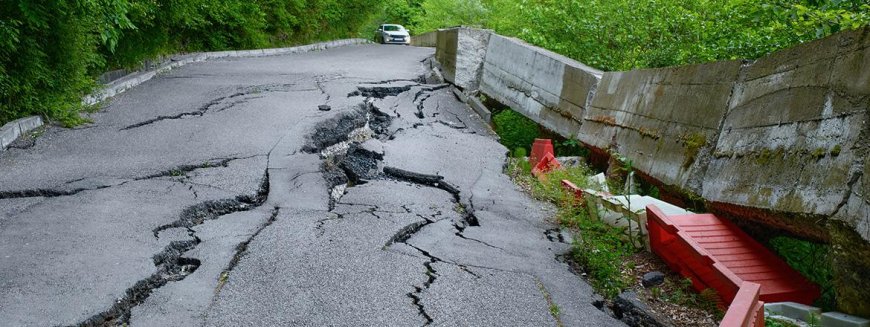Are Earthquakes Really More Frequent Now? Or Are We Just Noticing Them More?
Are earthquakes happening more often, or does it just feel that way? Discover the truth about earthquake frequency, detection, and why we’re hearing more about them now.

In recent years, it feels like the earth is shaking more than ever. News headlines are flooded with reports of devastating earthquakes, sparking fears that our planet is becoming more unstable. But is this really the case? Are earthquakes happening more frequently, or are we just more aware of them? Let’s break it down!
Are Earthquakes Actually Increasing?
The short answer? Not really. According to the United States Geological Survey (USGS), the number of earthquakes worldwide has remained relatively consistent over the past century. However, there are a few key reasons why it feels like they’re happening more often:
-
Better Technology, More Detection
In the past, many smaller earthquakes went unnoticed. Today, thanks to advanced seismic monitoring systems, we can detect even the tiniest tremors happening deep beneath the surface. What would have gone under the radar 50 years ago now shows up on our screens in real-time. -
Faster News & Social Media
Decades ago, unless an earthquake was catastrophic, you might not hear about it at all. Now, the moment the ground shakes anywhere, Twitter (X), Facebook, and news apps light up with reports. This makes it seem like earthquakes are happening more frequently—even if the actual numbers haven’t changed much. -
More People, More Buildings, More Impact
The world’s population has exploded, and cities are growing at a rapid pace. In the past, earthquakes may have struck remote areas with little damage. But now, as more people live in earthquake-prone zones, we see more destruction—and more media coverage—when a quake hits.
What About “Big” Earthquakes? Are They More Common?
When it comes to major earthquakes (magnitude 7.0 or higher), data shows that the numbers fluctuate from year to year. Some years have more big quakes, others have fewer. But overall, the long-term average remains stable.
That said, scientists have noted that earthquake clusters can occur, where several large quakes happen close together in time. This can create the illusion that earthquakes are becoming more frequent, when in reality, it’s just a natural pattern.
Could Climate Change Be a Factor?
There’s some debate about whether climate change plays a role in earthquakes. While climate change affects weather patterns, it doesn’t directly cause tectonic plates to move. However, some scientists suggest that melting glaciers and rising sea levels could slightly alter the pressure on the Earth's crust, potentially triggering quakes in certain areas. But this is still an area of ongoing research.
The “Ring of Fire” & Why Some Regions Get More Quakes
If you look at a global earthquake map, you’ll notice most major earthquakes happen along the Pacific Ring of Fire—a horseshoe-shaped region stretching from the west coasts of North and South America to Japan, the Philippines, and New Zealand. This area sits on multiple tectonic plate boundaries, making it one of the most earthquake-prone places on Earth.
Countries like Japan, Indonesia, Chile, Mexico, and the U.S. West Coast will always experience more earthquakes simply because of where they’re located. The frequency of quakes in these areas hasn’t dramatically increased—it’s just that people are paying more attention.
Final Thoughts: Should We Be Worried?
While it may feel like earthquakes are happening more often, the science doesn’t back up a massive increase. What has changed is our ability to detect and report them quickly.
That said, preparedness is always key. If you live in an earthquake-prone area, make sure you have an emergency plan, secure heavy furniture, and know what to do if the ground starts shaking. Because while earthquakes may not be increasing, they will continue to happen—just as they always have.
What's Your Reaction?
 Like
0
Like
0
 Dislike
0
Dislike
0
 Love
0
Love
0
 Funny
0
Funny
0
 Angry
0
Angry
0
 Sad
0
Sad
0
 Wow
0
Wow
0



















































